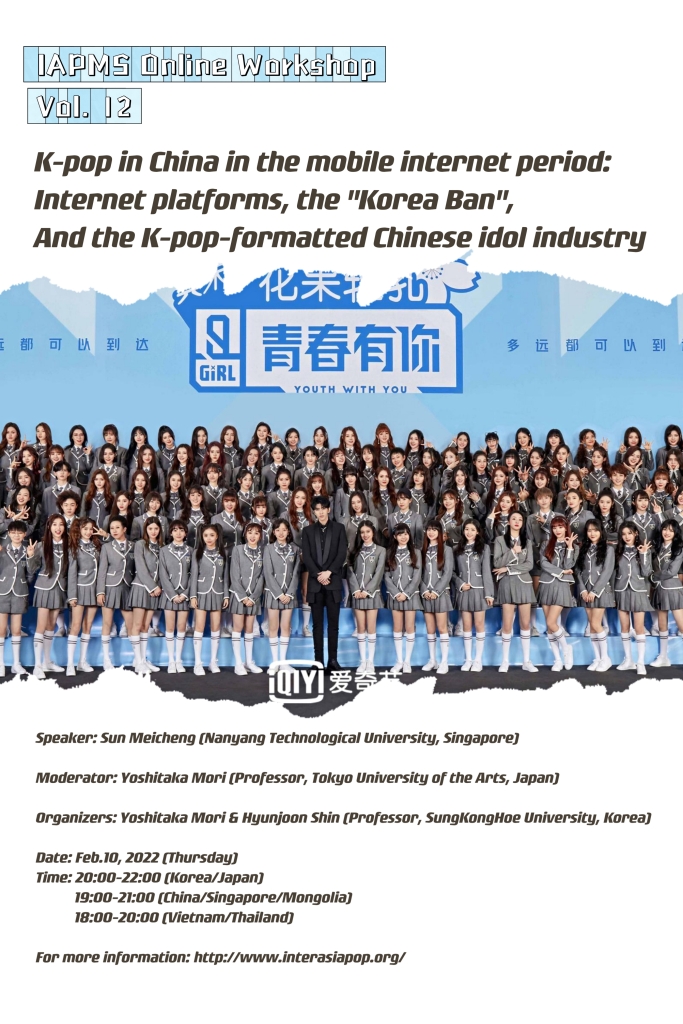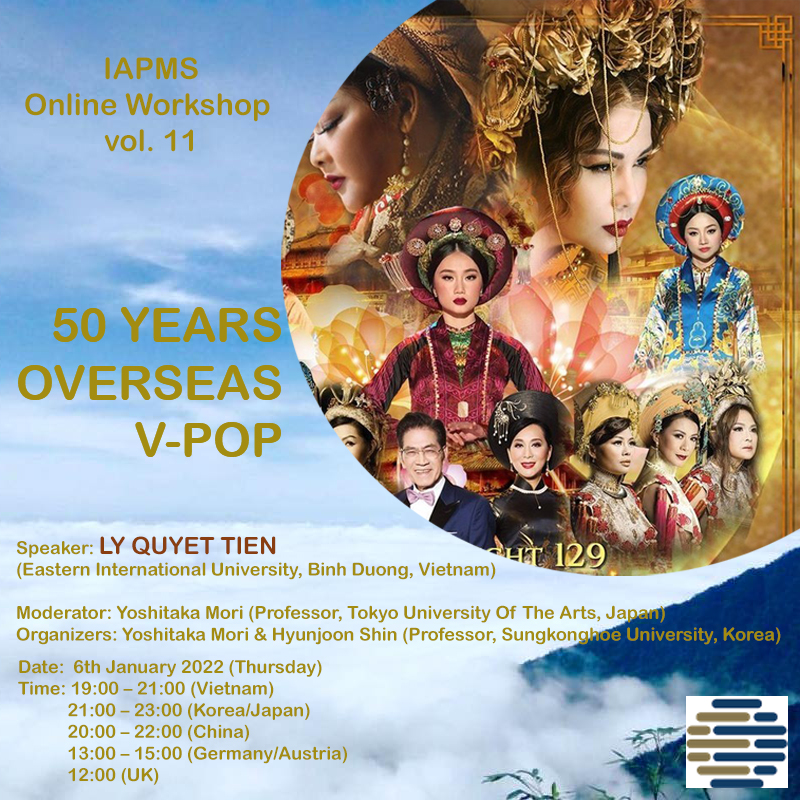Turns and Revolutions in Popular Music Studies
XX Biennial IASPM Conference
School of Music, The Australian National University
Canberra, Australia, 24–28 June 2019
Call for Presentations
As certain songsters and songstresses have noted, seasons turn, turn, turn, even if you are talking about a revolution. While global warming alters seasonal cycles with the aid of neoliberal and (pseudo)socialist forms of capitalism, and waves of societal turmoil follow each other with varying degrees of authoritarianism in different parts of the world, popular music studies remains committed to critical enquiry of music of the masses, the everyday, a variety of subcultures, the megastars, all with their revolutionary potential. Faced with the increasing worldwide austerity in the humanities and social sciences, caused by short-sighted research funding policies that purportedly aim at revolutionary technological and business innovations, popular music studies also struggles with its future directions. Whither popular music studies and where to turn?
Popular music studies in its institutional form is approaching the end of its youthful years, and IASPM will celebrate its twentieth biennial conference in Canberra. This provides also an opportunity to turn to the past and reconsider what may be learned from the twists and shouts of the previous decades. How have recent affective, neomaterialist, performative, post-humanist, spatial, transnational and visual turns, among others, affected popular music studies, and what might the emergent or future disciplinary turns be? Or to what extent do the turns and revolutions within popular music studies signal an excessive neoliberal belief in constant innovation that implies a lack of thorough investigation of the field’s intellectual history? How are the politics of higher education changing the field’s history of critical research and challenging its civic agenda?
To address these issues, as well as any other questions and topics related to the past, present and future turns and revolutions of popular music studies, the International Association for the Study of Popular Music invites proposals for the twentieth biennial conference, to be held at the School of Music at the Australian National University in Canberra 24–28 June 2019. The general theme of the conference is divided into six interrelated streams:
a) Temporal turns and revolutions. In recent years there has been a pronounced interest in popular music as cultural heritage. Alongside issues of heritagisation, this stream accommodates topics relating to nostalgia, history, historiography and futurology alike, and any other aspect involving temporal relations within popular music studies.
b) Spatial turns and revolutions. As popular music studies is a global field of enquiry, debates emerge concerning the key geographical loci of its knowledge production. This stream welcomes discussion on the centrality of Western conceptualisations of popular music and their challenges, including the variety of centre–periphery relations, “locals” versus “newcomers”, migration and displacement. Furthermore, how are issues of space and place dealt with in the field, including such liminal circumstances as festivals?
c) Technological turns and revolutions. Media studies approaches constitute a dominant strand of popular music studies, and in addition to issues of media, mediation, mediatisation, et cetera, this stream invites topics that address all dimensions of popular music and technology, whether conceived as practical technical solutions or more abstract logic behind the use of various tools and techniques. A particularly relevant theme in this stream is the presence of technological elements in all stages of the music industry, from production to consumption, and how they blur the lines between live, recorded and streamed music experiences. Additionally, how is technology inspiring aesthetic choices, also in terms of post-digital backlash?
d) Political turns and revolutions. Popular music studies, however defined, is intimately associated with questions of power relations and hence with politics. In an age of global migration, extremist populism, global warming and #metoo, the politics of popular music are implicated in issues of racism, ecological activism and gender and sexual discrimination in particular. Presentations focussing on identity, intersectionality, and more generally, inclusivity are especially welcome, as well as those that address the socio-historical shifts in protest music, however conceived.
e) Theoretical turns and revolutions. How has the inherent interdisciplinary nature of the field evolved during the last decades? How have “popular” and “music” been – and continue to be – understood in the field, and how is their “study” or “analysis” conceived? Furthermore, how are the theoretical and methodological choices that popular music scholars make today likely to affect the field’s “health and wellbeing” in the future? Of particular relevance here are topics that deal with conceptual curves and conflicts within popular music studies, whether stemming from feminism, Marxism, postcolonialism, semiotics, music analysis, or any strand of music theory in its broadest sense.
f) Affective turns and revolutions. Issues of feeling, emotion and pleasure have been central in the study of popular music, in part because of the importance granted to forms of stardom and fandom. Alongside such questions, this stream tackles additional aspects of affective attunements and alliances within popular music and its scholarly investigation.
Academic Committee
Pablo Alabarces, Emilia Barna, Sam de Boise, Giacomo Bottà, Diego García Peinazo, Elsa Grassy, Florian Heesch, Sarah Hill, Fabian Holt, Nadine Hubbs, Laura Jordán González, Akitsugu Kawamoto, Pil Ho Kim, Serge Lacasse, Kristin McGee, Isabella Pek, Rosa Reitsamer (co-chair), Geoff Stahl (co-chair).
Local Organising Committee
Samantha Bennett (chair), Catherine Hoad, Di Hughes, Stephen Loy, Bonnie McConnell, Pat O’Grady, Georgia Pike, Julie Rickwood, Geoff Stahl, Catherine Strong, Aleisha Ward, Samuel Whiting, Kirsten Zemke.
Abstracts
There will be four options: panels (of 3 or 4 presenters), individual papers, film/video presentations, or poster sessions. Panels and individual papers may also be delivered as practice-based presentations, featuring performance-based, composition-based, recording-based or multimedia-based research. In case of practice-based presentations, please make sure to include a description of room and/or technical requirements. In addition, online presentations may be considered for inclusion in the programme, yet priority is given to on-site participation.
Panels
Proposals of organized panels are strongly recommended (two-hour long sessions with four papers, or three papers and a discussant). Each session should leave at least 30 minutes for discussion or for comments by a discussant immediately following the presentations. The panel organizer should submit the panel abstract and all individual abstracts (200 words each) in one document, with a full list of participant names and email addresses. Where an independently submitted abstract appears to fit a panel, the Academic Committee may suggest the addition of a panellist.
Papers
We invite abstracts of no longer than 200 words, including five keywords for programming purposes and an optional list of references (max 10). Individual paper presentations are 20 minutes long to be followed by 10 minutes of discussion.
Film/video session
Recently completed films introduced by their author and discussed by conference participants may be proposed. Submit a 200-word abstract including titles, subjects, and formats, and indicate the duration of the proposed films/videos and introduction/discussion.
Poster session
A space where presenters can exhibit posters will be provided. A 200-word abstract by the poster’s author, including five keywords for programming purposes, must be submitted.
Submission
Please email your abstract no later than 31 July 2018, as a doc/odt/rtf attachment to iaspm2019@anu.edu.au. Please name the file with your surname (eg. Ciccone.docx). The following format should be used:
• Name, affiliation and contact email address
• Type of presentation (select one from: panel, individual paper, film/video, poster)
• Stream (select preferably one but not more than two from: Temporal/Spatial/Technological/Political/Theoretical/Affective Turns and Revolutions)
• Title of presentation
• Abstract (200 words maximum; in the case of panels, include a general abstract followed by individual abstracts, in total 1000 words maximum)
• Five keywords
• Bio (80 words maximum; in case of panels, bios of all participants)
Abstracts will be accepted in English, IASPM’s official language. Papers in all other languages are allowed, if accompanied by a visual presentation in English. Letters of acceptance will be sent by 30 September 2018.
Each participant must be a member of IASPM: http://www.iaspm.net/how-to-join. Each participant may present only one paper at the Conference, but may also preside over a panel or serve as a discussant.
The conference organisers look forward to receiving your submissions!
With kindest regards
IASPM Executive Committee:
Julio Mendivil, Chair
Jacopo Conti
Marta García Quiñones
Antti-Ville Kärjä
Kimi Kärki
Sílvia Martínez
Ann Werner



